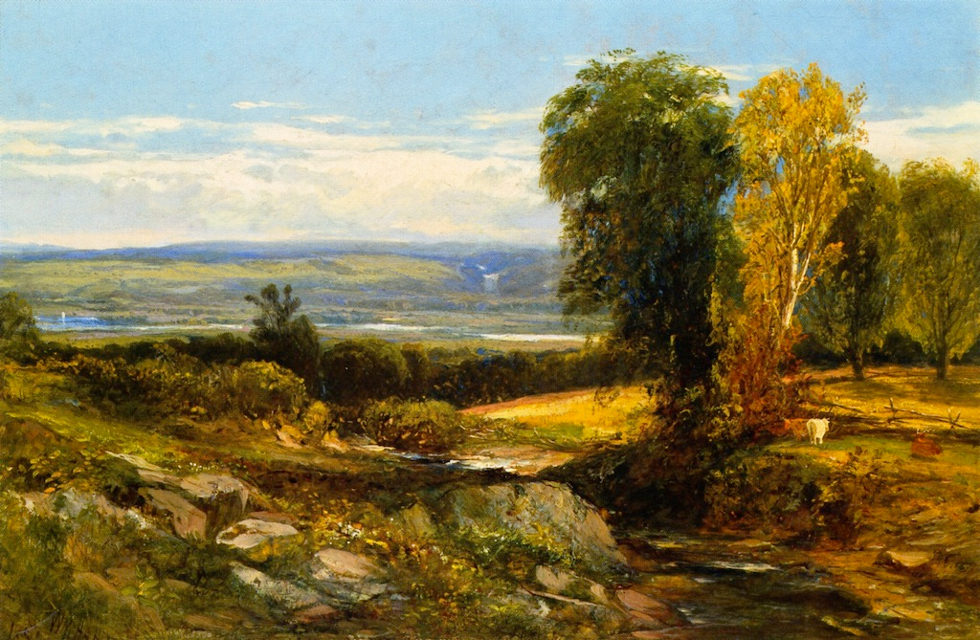Lori Desrosiers – Five Poems
Google maps search for my parents’ first house
No more mailbox, no number
the woods a tangle of brush
and stone, fallen down steps,
driveway overgrown, cracked.
The entire top of the hill razed
sand and silt, no trees
below hollowed out house
not even ours.
Ours is gone, torn down
maybe even before the heat
of our bodies had faded
on divorce’s road to other lives.
Behind the house where grapes
grew on trestles, now some sort
of huge hole in the ground
foundation for a stadium
or some kind of quarry, hard to tell.
What is gone is where we grew
snapdragons and peas, irises
zucchinis, there were bees
a picture window with ivy
baby robins in a nest
hornets on slate rock patio.
We had a clear view of the Hudson
above apple and pear trees
blossoming crabapple and cherry
paths in the woods, rocks to climb
a massive tulip tree, yellow flowers
thick branches, home to so many birds
trunk blackened by lightning,
one of the first cut down.
The hill was so steep my mother
feared taking the car down,
yet down we went.
Ceremony
(response to prayers for Standing Rock)
when drum
and singing
resurrect
a heat
stirs
beneath your
thick shell
cracking
long-piled
protections
at least
momentarily
and you wait
for this
to cede
but are driven
skyward
well at least
your thoughts
and you lose
the fear
you wear
and join in.
Beth with Hummingbirds
Beth into her lap
hummingbirds dip
small fans ruffle
spin disturb
yellow and green
hummingbirds dip
like a race car no
more like electricity
without the shock
hummingbirds dip
into Beth her lap
Words are Not Enough
Some days I realize
that all I have is words
which are not enough
though I also have
this body to push with
its muscles and sinew
the bit of strength in them
and there is also music
the sound of rain on canvas
the roiling of waves
my feet lead me to dunes
or over stone bridges
and the smell of moss,
lavender, or grape iris
and the taste of roses,
fog, or salt in the wind
creak of tree sap
wails of nesting crows
orange hills at dusk
then indigo evening
and limitless starlight
which is
more than I can fathom
or just enough.
before the split
barefoot summer days dallied in creek water
daffodil’s white spring bloom airborne by breath
long grass white pulp chewed feet met soil rocks ants
cling of cotton shorts sweat bees caressed honeysuckle
plucked stripped yellow flowers suckled sweetest part
toes scooped wet stones practiced skimming flat ones
pocketed pink quartz caught newts tadpoles toads
surveyed caterpillars’ climb up oak birch maple bark
sting of rain dazzle of lightning scudded home daisies bending
not yet phased by future not yet split asunder
Author’s Statement on Beauty
When my students write ekphrasis (poetry about art), they need to be able to find a way into a painting or other type of artwork, so that their poem becomes a reflection of what makes that piece of art remarkable, and somehow find the mysterious connection between words and art. The poet has to write about what is perceived through the senses, and channel it through the imagination. What makes a poem beautiful? In my view, in addition to well-crafted, lyrical language, it is the ability to draw in the reader, to give them a sense of participation in the art. My own work tends to bring a sense of story, inviting the reader in. A poem with rich, interesting language, skillfully crafted so the reader takes on the cloak of the poem, with a strong emotional core, may just touch on the mystery of beauty.

Lori Desrosiers’ poetry books are The Philosopher’s Daughter (Salmon Poetry, 2013), a chapbook, Inner Sky (Glass Lyre Press 2015) and Sometimes I Hear the Clock Speak (Salmon Poetry, 2016). She edits Naugatuck River Review, a journal of narrative poetry, and WORDPEACE, an online journal dedicated to social justice. She teaches Literature and Composition at Westfield State University and Holyoke Community College, and Poetry in the Interdisciplinary Studies program for the Lesley University M.F.A. graduate program. More at: loridesrosierspoetry.com.

